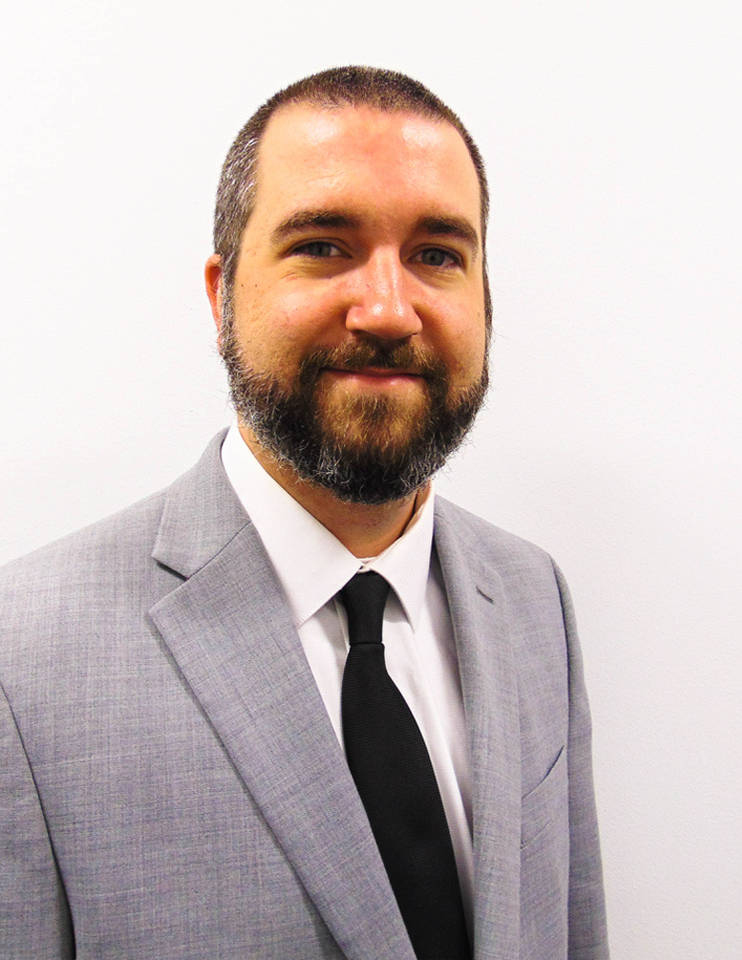Geico and other insurance companies operate with their interests in mind, often leading to complications and delays. A Downtown St. Petersburg personal injury lawyer will approach your claim strategically, ensuring you’re not left footing the bill for someone else’s negligence.
A Quick Look at Geico’s Claims Process
Before diving into how an attorney assists with your claim, it's important to know the general process Geico uses to handle injury claims. The company emphasizes swift resolutions, but those quick offers often come with significant compromises on the settlement amount. They may try to settle before you fully understand the extent of your injuries or the long-term impact of the accident.
Geico’s process typically begins with a claims adjuster contacting you shortly after the accident. While they may seem cooperative, their goal is often to gather information that benefits their case, not yours. Adjusters might request recorded statements or access to your medical records – steps that can inadvertently harm your claim.
A personal injury attorney understands these tactics and knows how to counter them. By letting a lawyer handle communications with Geico, you can avoid potential pitfalls and focus on recovering from your injuries.
Initial Steps Your Attorney Takes
Once you hire a personal injury attorney, their first steps involve gathering essential documents and reviewing every aspect of your case. These documents form the foundation of your claim, and each one plays a crucial role in building a strong case. Key records include:
- Medical records: These records outline the severity of your injuries and provide a timeline of your treatment, which is critical for demonstrating the accident's impact.
- Police reports: Law enforcement documentation establishes liability and objectively accounts for the incident.
- Correspondence with Geico: Any communication, including initial settlement offers, helps your attorney understand the insurance company’s approach and identify weaknesses in their position.
By analyzing this evidence, your lawyer ensures your claim reflects the true extent of your damages, from immediate medical bills to long-term costs like ongoing treatment and reduced earning capacity.
Investigating the Accident

Geico conducts its own investigation to reduce liability and protect its bottom line. Your attorney counters this by launching an independent inquiry to strengthen your claim. This investigation often includes:
Witness Interviews
Statements from individuals who saw the accident provide valuable insights that support your version of events. Witness testimony can clarify what happened, establish fault, and counter any attempts by Geico to downplay or dispute your injuries.
Accident Reconstruction
Professionals may recreate the accident in more complex cases to demonstrate how another party’s negligence led to your injuries. This process provides visual and factual evidence that is difficult for insurance companies to refute.
Medical Analysis
Doctors’ assessments are vital in documenting the severity of your injuries and any long-term effects. Your attorney might work with healthcare professionals to explain how the accident caused your condition and why the treatment you’ve received – or will require – is justified.
These investigative steps ensure that your attorney builds a compelling case with concrete evidence. They make it harder for Geico to dispute liability or minimize your damages.
Dealing with Geico Adjusters
When Geico adjusters contact you, they might seem cooperative and helpful. However, their primary goal is to protect the insurance company’s interests. Your innocent statements can work against you later, so allowing your attorney to handle communications is critical.
Your lawyer acts as a buffer between you and Geico. They carefully review every request for information and ensure that only the necessary details are shared. This approach prevents adjusters from twisting your words or misrepresenting facts to justify a lower settlement.
By maintaining control of the narrative, your personal injury attorney keeps the focus on evidence and the true value of your claim. This strategy ensures that Geico can’t exploit gaps in documentation or inconsistencies in your account.
Calculating the Value of Your Claim
Many claimants underestimate the value of their injury claim because they focus only on immediate costs, such as emergency room visits or vehicle repairs. Geico relies on this to offer settlements that fall far short of what you’re entitled to receive.
A personal injury lawyer calculates the true value of your claim by thoroughly evaluating your damages, which typically fall into three categories:
Medical Bills
Your attorney accounts for past, current, and future medical costs related to the accident. These expenses include hospital stays, surgeries, physical therapy, and any long-term treatments or medications.
Lost Income
If your injuries prevented you from working, your lawyer factors in the income you’ve lost during recovery. They also consider reduced earning potential if your injuries affect your ability to perform your job in the future.
Non-Economic Damages
Accidents impact more than just your finances. Pain and suffering, emotional distress, and diminished quality of life are also compensable damages. Your personal injury lawyer ensures these non-economic factors are included in your claim, providing a comprehensive picture of how the accident has affected you.
By calculating these damages, your attorney ensures you pursue a settlement that fully addresses your financial, physical, and emotional needs. They’ll help prevent you from accepting an offer that leaves you struggling to cover ongoing expenses.
Negotiating with Geico
Geico typically begins the negotiation process by offering a lowball settlement. This tactic is common; they hope claimants will accept these initial offers without question. However, a personal injury lawyer recognizes when an offer doesn’t reflect the true value of your claim and works to secure a more appropriate amount.
- Evaluating the offer: Your attorney reviews Geico’s initial settlement offer in detail, comparing it to the damages you’ve incurred. If the offer falls short, they prepare a counteroffer backed by strong evidence.
- Presenting evidence: Negotiation with Geico often involves presenting the documentation and analysis your attorney has gathered. This includes medical records, witness statements, and accident reconstructions that demonstrate the full extent of your losses.
- Persistent advocacy: Securing a fair settlement can involve several rounds of offers and counteroffers. Your lawyer remains persistent, advocating for your needs and explaining why Geico’s offers are insufficient.
Through strong advocacy and a commitment to your best interests, your attorney pushes Geico to offer a settlement that aligns with the actual impact of the accident on your life.
Preparing for Litigation
Filing a lawsuit is a strategic move that can motivate Geico to reassess its position. Even if your case doesn’t go to trial, the mere act of preparing for litigation demonstrates your attorney’s commitment to securing a fair outcome. The preparation process involves several critical steps:
Drafting and Filing Legal Paperwork
Your lawyer prepares the required legal documents to initiate the lawsuit, including a formal complaint that outlines your claim against Geico. This document details the accident, your injuries, and the compensation you seek, setting the stage for the legal proceedings.
Gathering Additional Evidence
As the case progresses, your attorney continues to collect evidence to strengthen your claim, including completing the discovery process. This evidence may include expert testimony, additional medical documentation, and accident reconstruction analyses.
Preparing Witnesses
If your case involves depositions or a trial, your lawyer works with witnesses to ensure they can provide clear and compelling testimony. Witnesses may include those who saw the accident, medical professionals, or other experts relevant to your case.
Each of these steps enhances your position, putting pressure on Geico to settle rather than face the uncertainty and expense of a trial.
The Importance of Medical Evidence

Medical evidence plays a pivotal role in your claim. Geico may attempt to downplay your injuries or argue that they weren’t caused by the accident. To counter these tactics, your lawyer builds a robust medical case that leaves little room for dispute.
Medical Reports and Treatment Plans
Comprehensive medical records and treatment plans illustrate the severity of your injuries and the care you’ve received. These documents help establish a direct link between the accident and your condition, countering any arguments from Geico about unrelated or pre-existing issues.
Imaging Studies
X-rays, MRIs, and other imaging studies provide visual proof of injuries, such as fractures or soft tissue damage. These are difficult for insurance companies to dispute and can significantly strengthen your case.
Expert Testimony
Your lawyer may work with healthcare professionals to explain the long-term effects of your injuries. Their testimony can clarify the extent of your recovery and justify the compensation needed for future medical expenses.
By presenting this evidence, your attorney limits Geico’s ability to question the validity of your claim and ensures that your injuries are fully accounted for in any settlement or judgment.
Handling Denied Claims
Geico might deny your claim entirely, often citing insufficient evidence or disputes over liability. A personal injury attorney identifies the flaws in their reasoning and takes targeted steps to challenge the denial. Some of the steps they’ll likely take include:
Providing Additional Evidence
Your lawyer reviews the denial and determines what additional documentation is needed. Supplying missing evidence, such as medical records or witness statements, can sometimes resolve the issue.
Drafting a Demand Letter
If the denial is unjustified, your attorney drafts a demand letter that outlines why the claim should be reconsidered. This formal document explains the evidence supporting your case and requests a review of the decision.
Escalating Through Appeals
Your lawyer may further appeal the matter if Geico remains firm in its denial. They’ll continue building your case to counter the insurer’s objections and keep the claim moving forward.
Persistence is key in overcoming denials. By presenting a well-supported argument, your attorney pushes back against Geico’s attempts to avoid payment and keeps your claim alive.
Counteracting Common Tactics
Insurance companies like Geico use various strategies to reduce payouts. Recognizing these tactics and countering them effectively is essential to protecting your rights. Some of the more common tactics include:
- Delaying the process: Geico may intentionally slow the process, hoping you’ll become frustrated and accept a lower offer. Your personal injury lawyer pushes back by keeping the case moving and addressing delays promptly.
- Disputing liability: The company might argue that you were partially or fully at fault for the accident. Your attorney gathers evidence to refute these claims and demonstrates the other party’s responsibility.
- Undervaluing damages: Geico often tries to downplay the extent of a victim’s injuries or the impact on their life. Your lawyer strengthens your position by presenting detailed medical records and documentation of non-economic damages.
Managing Deadline
Injury claims are governed by strict deadlines, from statutes of limitations to Geico’s internal timelines for submitting documentation. Missing these deadlines can jeopardize your ability to recover compensation.
Your attorney keeps track of these critical dates, ensuring that all paperwork is submitted on time. By staying ahead of deadlines, they prevent unnecessary delays and ensure your claim remains viable.
Helping You Focus on Recovery
Recovering from an accident takes time and energy. The last thing you need is to deal with the stress of a legal claim and an uncooperative insurance company. Your personal injury attorney will manage your case in the following ways, allowing you to focus on healing.
- Communication with Geico: Your attorney handles all interactions with adjusters, preventing unnecessary stress and ensuring that your case is presented accurately.
- Negotiation and advocacy: They fight for a settlement that addresses the accident's full impact, freeing you from the pressure of dealing with insurance negotiations.
- Regular updates: Your lawyer keeps you informed about the progress of your case, answering any questions and explaining your options along the way.
This support ensures you can prioritize your recovery without sacrificing your right to fair compensation.
You Focus on Recovery – Let Your Lawyer Fight the Insurance Company

Preparing, persistence, and proactive representation are essential to achieving a fair outcome when dealing with Geico. From challenging denied claims to preparing for litigation, your attorney will do everything they can to strengthen your case and counter the insurance company’s tactics.
With their support, you can focus on recovering from your injuries while they handle the legal complexities. Whether through negotiation or in court, your personal injury lawyer will work tirelessly to secure the compensation you deserve. Contact an attorney for a free consultation so they can protect your rights and your case.